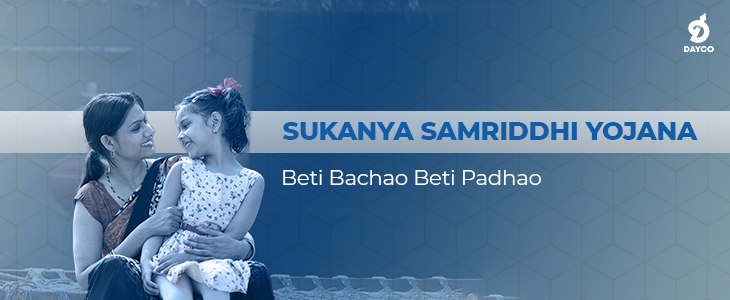Nischay Avichal
Are you saving enough for the expenses you will eventually bear for your child? Do you find yourself financially prepared? Child education expenses form a substantial part of a family’s budget. Financial planning has become crucial thanks to the steep rise in education inflation. And the truth isn’t hidden from anyone; the sooner you get started with investments, the better your preparedness. But how can one do this, and more importantly, how does one begin to invest?
In this blog, we will talk about one of the most suitable investments avenues that can be considered when saving for a girl child– the Sukanya Samriddhi Yojana, and how and why it is a worthy inclusion in your endeavour to give nothing but the very best to your child.
The Scheme
The Sukanya Samriddhi Yojana (SSY) is a tax-free small savings scheme backed by the central government meant for girl children. It was launched on January 22, 2015, by the Government of India to encourage saving for the welfare and education of girl children. The account can be opened by a parent or legal guardian of a girl child, given that the child is aged 10 or below.
The Details
-
Eligibility: You must be a resident Indian and parent/legal guardian of the girl child. An account for up to two girl children can be opened. Three accounts are possible in the case of twins being born the second time.
-
Entry age: Parents or legal guardians of a girl child who is ten years or less can open an SSY account.
-
Tenure: The maturity of the scheme is 21 years after the date of opening or at the time of marriage of the girl child (given the child has completed 18 years of age). Deposits in the account have to be made for 15 years since account opening, and a single withdrawal is also permitted in the account (up to 50 per cent of the corpus) for expenses related to the education of the girl child, given she is at least 18 or has passed 10th standard.
Premature closure and its conditions are discussed below.
-
Account maintenance and charges: A minimum deposit of 250 per year should be maintained in the account. The account will be deactivated if you do not make this minimum deposit. However, a deactivated account can be revived, after paying a penalty of 50 for each defaulted year, along with the missing payments (i.e. 250 for each defaulted year).
-
Interest: The interest rate is revised every quarter by the government. Presently, the interest rate is 7.60% per annum. The interest is compounded annually.
-
Nomination: This facility is not available in SSY.
Liquidity
The contributions under the SSY cannot be withdrawn before your child turns 18 or passes the 10th standard, whichever is earlier. Premature closure is only applicable in the event of death of the account holder or in cases of extreme compassionate grounds such as medical support in life-threatening diseases of the account holder or guardian’s death.
Also, no premature closure of the account is possible before the completion of five years from the account’s opening date.
The Tax Treatment
SSY is a EEE category investment. The investments are eligible for tax deductions u/s Section 80C up to 1.5 lakhs in a financial year. Further, the interest and maturity proceeds from the scheme are entirely tax-exempt.
How to open an SSY A/c?
You can open a Sukanya Samriddhi account via an authorised bank or post office. An initial deposit of at least 250 (up to 1.5 lakhs) has to be made while opening the account. Required Documents:
-
SSY Account opening form
-
Beneficiary’s birth certificate
-
Address proof of the guardian or parents of the beneficiary
-
Id proof of the guardian or parents of the beneficiary.
The Final Word
SSY is backed by the Government of India, making it an entirely risk-free investment with guaranteed returns. SSY is a worthy investment for parents with a lower risk appetite and who are saving for the long-term needs of a girl child. Besides this, the scheme can also act as a safe debt allocation with a reasonable tax-free return in your overall financial planning for the child.
Some of the noteworthy alternatives to this scheme can be equity shares or equity mutual funds, which can generate high inflation-beating returns in the long term. Equity investments can be considered, given that you are saving for long-term expenses and are willing to bear the risk.
If you have a question, share it in the comments below or DM us or call us - +91 9051052222. We'll be happy to answer it.
















